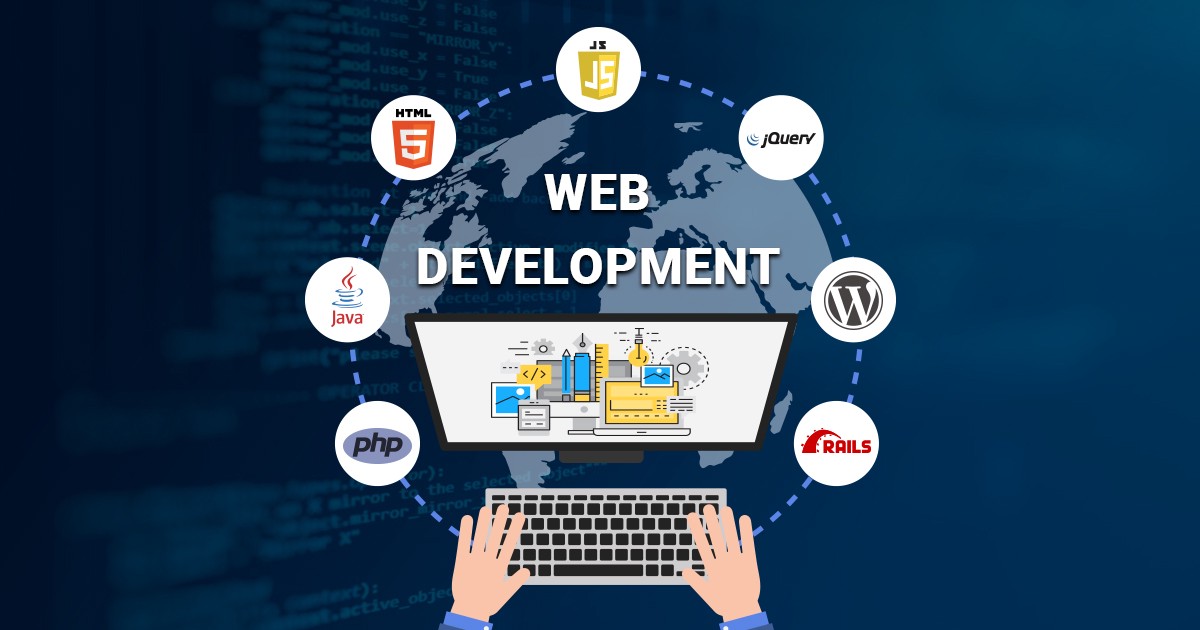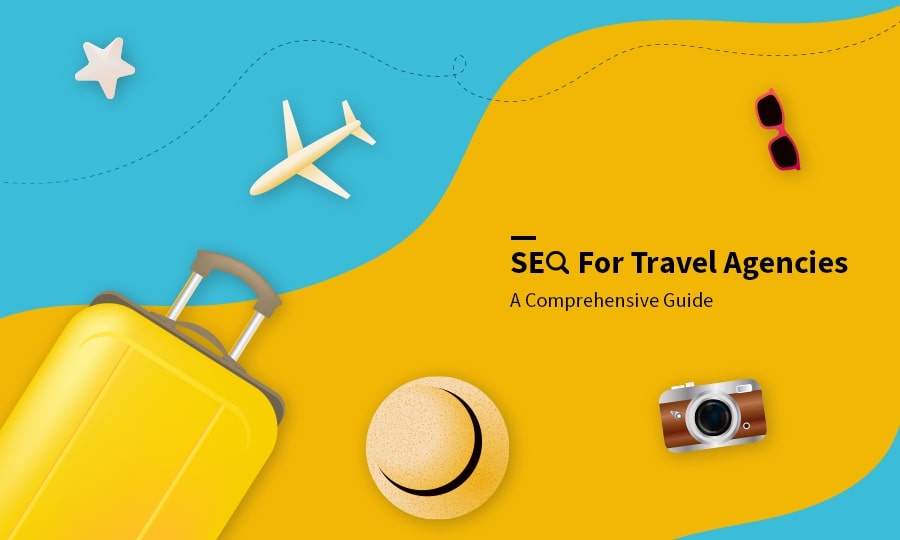
DMC (Destination Management Company) Web Development: A Full Review
A business, irrespective of its nature, must have an effective presence in the online arena today. It is particularly relevant to the travel and tourism industry, in which customer expectations are high and competition is severe. Being a destination management company, catering to services and products in areas related to travel, tourism, and events, can never be an exception. A good website is the most important factor that attracts customers, promotes services, and creates an efficient booking and communication platform.
This blog takes a deep dive into DMC web development, explaining the importance, key features, and best practices to create an effective website for a Destination Management Company.
What is a Destination Management Company (DMC)?
It is very important to know what a DMC is before one tries to understand the importance of web development for DMCs. A Destination Management Company is essentially a local expert in a given destination who organizes services for tourists, businesses, or event planners.
Their services include:
- Airport transfers
- Local transportation
- Tour guides
- Event management
- Accommodation arrangements
- Group tours and excursions
DMCs are the magic ingredients that make travel experiences unforgettable. They can customize their services to the exact needs of the traveler or any event—be it a corporate event, a wedding, or a leisure holiday. What makes them successful is the local expertise, which is why having an efficient and informative website is very important in promoting these services.
Why is Web Development Important for DMCs?
A well-built website forms the digital storefront for any company, and DMCs, it is important for more reasons than one can think of. Here's why:
First Impressions Last
The website is always the first point of interaction between a customer and a DMC. An outdated website, badly navigated or cluttered with too much information in unclear places, will discourage future clients. A well-thought-out website, instead, earns the trust and professionalism of the user as they explore more services of the DMC.
Presenting Services and Products
Many services are offered by the DMCs, and what best advertises them is the website. By using detailed descriptions, images, and videos, a wide range of offerings, such as tours, accommodations, and transportation, can be browsed through by potential clients.
More Bookings and Conversions
A major objective of any DMC website is to create bookings. An easy-to-navigate website with hassle-free booking processes helps the visitor become a paying customer. Integrated booking systems allow clients to book a tour, accommodation, or transportation online without having to exert time and effort on both sides.
Competitive Advantage
DMCs must stand out within a very competitive market. A modern, visually pleasing website with smooth navigation that is compatible with mobile, easy to use, and simple to book can greatly help to differentiate your offerings from others. This gives clients a reason to choose your service over others.
Global reach
As the internet is increasingly used, people are booking their travel plans online. A well-optimized website allows DMCs to tap into global markets. With multilingual options and region-specific content, DMCs can attract international clients and cater to tourists from different parts of the world.
Key Features of a DMC Website
Having now discussed the necessity of a DMC's having an excellent web design, we should next see some of the necessary features that the website of a DMC must include:
Good Looks and Easy to Use
The design of the website should be attractive and in line with the brand image. It must have a reflection of company values and personality—be adventurous, luxurious, or corporate. A clean and simple, modern design, along with easy navigation, would definitely enhance the user experience. This way, the visitor is able to easily locate whatever he or she may need.
Mobile Compatibility
Today, for example, most users navigate the internet on their phones. A responsive design, therefore, ensures that your website displays and functions well regardless of the device it is viewed on since DMCs are normally visited with information intended to be accessed from anywhere.
Clear Service Listings
The main objective of the website is the promotion of services offered by the DMC, including detailed descriptions of services, high-quality images, and videos to enable the actual customer to view what the customer will obtain. Examples of services include transfers from or to the airport, a tour, a group of activities, and transport. All services should be named clearly, along with prices if they apply to the situation.
Search and filtering options
Given the range of services that a DMC provides, there is a need for an efficient search and filter feature. The feature will enable users to locate services based on specific requirements such as transportation type, tour duration, or even the package of an event. The search bar should be simple to use, and filters should be intuitive in terms of narrowing down results.
Online Reservation System
All DMC websites must include online booking. Tour booking, transfers, and accommodation should be available to be booked directly from the website. The system should also support an integration with payment gateways to ensure secure online transactions are made. A seamless process of booking results in better conversion rates.
Testimonials and Reviews
Good customer reviews are good ways to establish credibility and gain trust from customers. Positive feedback on the website from previous clients helps other potentials make informed decisions. This is very crucial in travel industries since most of the time, customers will rely on reviews to make a choice between the best services.
Local Insights and Guides
Local knowledge is one of the biggest advantages of a DMC. A DMC website may feature local secrets: gems, cultural experiences, or recommended attractions. Content provided by blogs or travel guides in this manner engages the visitor and will likely increase the services booked on the strength of such recommendations.
SEO and Content Optimization
The SEO plays a critical role in ensuring that the DMC website is ranked well in the search engines. Optimizing content, metadata, and images will attract organic traffic. Relevant, high-quality content will be useful in answering common questions people ask or even giving local tips for a good ranking on the search engine.
Multilingual Support
It must have a multilingual website in order to be able to attract international clients. The availability of content in multiple languages will enable the DMC to attract tourists from different countries and provide them with a user-friendly experience.
Contact Information and Live Chat
For easy contact, include all of their phone numbers, email addresses, and addresses, because the customers' confidence and satisfaction would increase significantly by seeing them on your DMC website. Adding live chat helps visitors receive fast responses to any question, raising their customer satisfaction level and therefore enhancing chances of conversion.
Best Practices in DMC Web Development
While developing a website for a destination management company, the following best practices must be adopted to make sure that the site is effective and user-friendly:
Design should be simple and intuitive. While a good look and feel is paramount, simplicity is essential. Avoid cluttered pages and complex navigation. The site must be intuitive, simple to use, and quickly able to locate the information users want as they navigate through various parts of the site.
Optimize Page Speed
A slow website will often frustrate users and result in a higher bounce rate. Optimize images, use caching, and optimize code for it to load fast, ensuring the user stays engaged with the website.
Security
It has online booking functionality; thus, the security of the customer's data is an utmost priority. The website should be secure, utilizing HTTPS and SSL certificates to protect personal and financial information, and should be accessible to all users, including the disabled, following the WCAG accessibility guidelines to ensure a seamless user experience.
Conclusion
The destination management company is as vital as an online brochure. DMCs can thrive in the competitive travel and tourism industry by focusing on user-friendly design, essential features, and web development best practices. A well-constructed website enhances customer experience and boosts business success, making it essential for them to create a strong online presence.
Read Also
Travel's Future: Innovations in CRM and Marketing

 Start your Travel Business with Our 7 Day Free Trial Website!
Start your Travel Business with Our 7 Day Free Trial Website!





